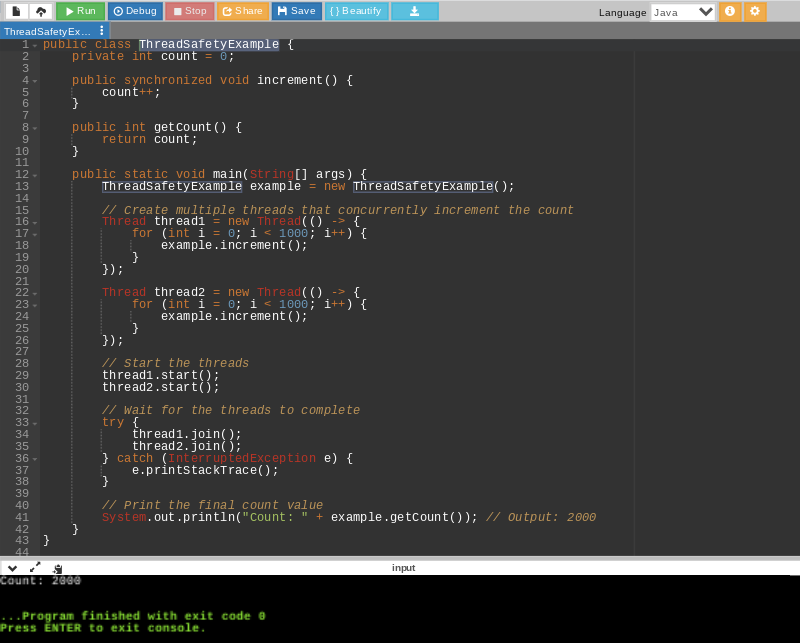Why Are Strings Immutable in Java? Enhancing Code Reliability
Why Are Strings Immutable in Java? Enhancing Code Reliability
Blog Article
What Is Immutable Strings and Just How It Functions
In the world of programming, comprehending the concept of immutable strings is vital for producing robust and safe and secure applications. Immutable strings refer to strings that can not be changed after they are produced, making certain data honesty and predictability within the code.
The Fundamentals of Immutable Strings
Unalterable strings, as a basic idea in programming, are personality sequences that can not be changed as soon as they are developed. This suggests that as soon as a string is assigned a worth, that worth can not be modified. In languages like Python and Java, strings are unalterable objects, bring about various effects in regards to memory management and information stability.
One of the key benefits of immutable strings is that they offer a complacency in data adjustment. Considering that the content of an immutable string can not be changed, it ensures that the initial information remains undamaged, decreasing the danger of unplanned changes during program execution (Why are strings immutable in Java?). This residential or commercial property additionally simplifies debugging procedures, as designers can trust that as soon as a string is defined, its value will not be inadvertently changed
Furthermore, unalterable strings help with effective memory use. When a new string is produced based on an existing one, as opposed to customizing the original string, the brand-new worth is stored independently. This strategy improves performance by decreasing memory fragmentation and simplifying memory allowance procedures. In general, comprehending the essentials of unalterable strings is critical for understanding programs principles and enhancing code performance.
Benefits of Immutable Strings
Building upon the safety and effectiveness benefits of immutable strings, their benefits expand to enhancing code dependability and streamlining simultaneous programs jobs. By being immutable, strings can not be modified after development, which eliminates the danger of unplanned adjustments in the information they keep. This inherent immutability ensures that when a string is created, its value continues to be constant throughout the program's execution, decreasing the possibilities of bugs brought on by unanticipated alterations.
In addition, unalterable strings contribute to code dependability by making it much easier to reason about the state of a program. Since strings can not be transformed, designers can trust that a string will always hold the exact same worth, simplifying debugging and maintenance efforts. This predictability brings about much more trustworthy and steady codebases.

Implementation in Shows Languages
Within numerous programming languages, the incorporation of immutable strings is an essential aspect that influences exactly how information is handled and controlled within code structures. The execution of immutable strings varies across various programming languages, with each language offering its own systems to support this principle.

On the other hand, languages like C and C++ do not have integrated support for unalterable strings. Programmers in these languages have to manually implement immutability by applying rules within their code to stop direct modifications to string objects.
Ideal Practices for Working With Unalterable Strings
When managing unalterable strings in programming languages like Java and Python, sticking to ideal techniques makes sure safe and secure and efficient information control. Among the essential best practices is to make use of StringBuilder or StringBuffer as opposed to straight manipulating strings, why not look here particularly when dealing with considerable concatenation procedures. These classes offer mutable alternatives for string control, aiding to stay clear of unneeded memory allowances and enhancing performance.
An additional ideal technique is to use string interpolation or format works provided by the language rather than manual concatenation. This not only boosts readability yet likewise aids in preventing usual pitfalls find more information such as unintentional string adjustments. In addition, when functioning with delicate information such as passwords or API tricks, it is critical to stay clear of saving them as plain text in unalterable strings. Making use of safe storage space systems like char arrays or specialized libraries for managing sensitive info helps minimize safety and security risks connected with unalterable strings.
Real-world Applications and Instances
Exploring practical executions of unalterable strings in numerous sectors discloses their substantial influence on data honesty and system reliability. In the medical care sector, unalterable strings play an important role in ensuring the security and confidentiality of client data. By protecting against unapproved adjustments to delicate information such as clinical records and prescriptions, unalterable strings assist maintain conformity with stringent privacy regulations like HIPAA.
Economic institutions likewise take advantage of the unalterable nature of strings to improve the safety of client data and transaction records. Immutable strings assist stop fraud and unapproved alterations to financial info, providing a durable protection against cyber risks and ensuring the depend on and self-confidence of clients.

Conclusion
Finally, immutable strings are fixed and stable sequences of characters that offer benefits such as thread safety and boosted performance in programs. They are implemented in various shows languages to guarantee data stability and security. Ideal methods for collaborating with unalterable strings include preventing direct adjustments and using approaches that return brand-new string things. Real-world applications of immutable strings consist of information encryption, caching, and string manipulation jobs.
Unalterable strings refer to strings that can not be altered visit this web-site after they are produced, making certain information honesty and predictability within the code. When a brand-new string is produced based on an existing one, instead than changing the initial string, the brand-new value is stored individually.In languages like Java and Python, strings are unalterable by default, implying that once a string item is developed, its value can not be altered - Why are strings immutable in Java?. Finest methods for working with immutable strings include avoiding direct alterations and using methods that return new string objects. Real-world applications of unalterable strings include data security, caching, and string manipulation jobs
Report this page